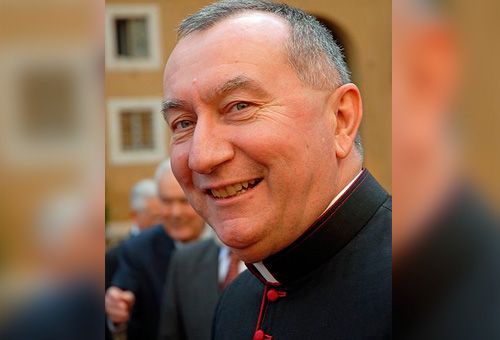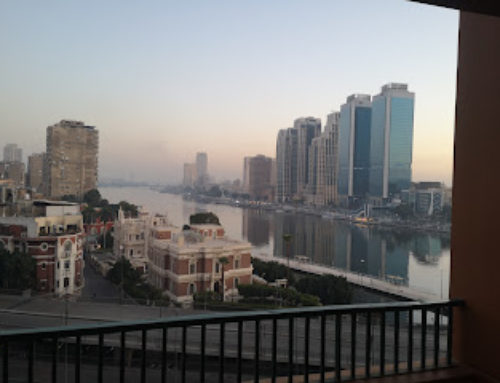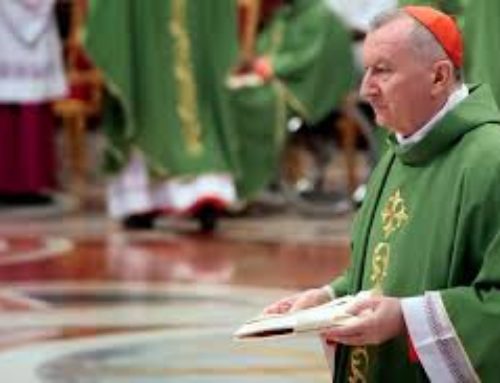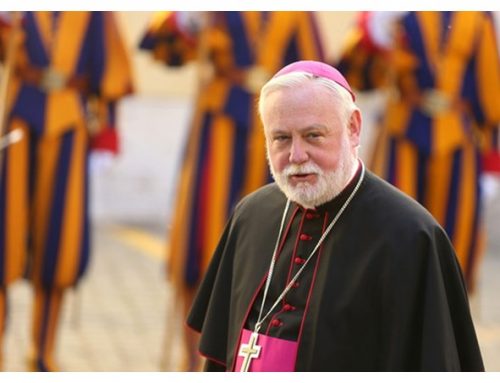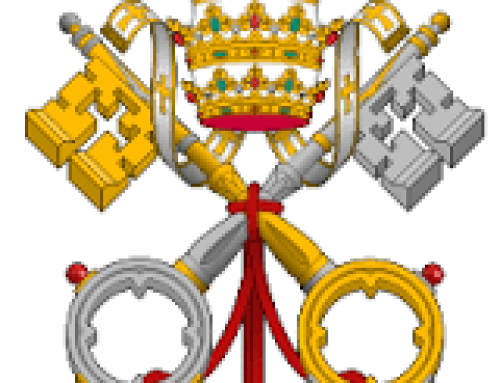Speech by His Eminence Cardinal Pietro Parolin
Secretary of State of His Holiness
V FORUM OF CATHOLIC-INSPIRED NGOS
Rome, 2 December 2022
1. Dear Friends, I would like to extend a cordial greeting and my best wishes to you, the representatives of Catholic-inspired NGOs participating in this 5th International Forum. I would also like to take this opportunity to thank Mr. Johan Ketelers and the Forum Committee for their close work with the Holy See in the organisation of this event.
This, the fifth iteration of the Forum meets fifteen years after its inception in December 2007. Over the years, many of the organisations present today have witnessed and contributed to the development of collaboration at the international level. Over time, other organisations have joined, while for some this may be your
first participation. All this clearly demonstrates that this forum, which provides a space for exchange and collaboration continues to grow stronger. A project, therefore, that wants to be an ecclesial reality of communion and, I would say, of participation in the evangelising mission of the Church, in particular by giving a voice to Catholics within international and intergovernmental institutions. A mission that the Second Vatican Council already supports, when in Gaudium et Spes it qualifies it as an ‘excellent form’ of apostolate:
“[…] various Catholic associations on an international level […] can contribute in many ways to the building up of a peaceful and fraternal community of nations. These […] associations contribute much to the development of a universal outlook – something certainly appropriate for Catholics. They also help to form an awareness of genuine universal solidarity and responsibility.” (GS 90).
2. As you know, the vast field of international and intergovernmental bodies is currently experiencing a crisis characterised by a lost sense of purpose for the functions which they were conceived for, namely: to maintain peace and international solidarity between various people, and develop cooperation with respect for fundamental human rights and considering the dignity of all human persons. Often these international forums have become places for advancing, or rather, imposing ideologies, and no longer forums for discussion and listening. I experienced this lack of mutual listening during my recent trip to New York for the UN High Level Week, where speeches were received in too often empty halls.
1
Moreover, in recent months we have witnessed the growing danger that the current conflict in the heart of Europe – not to mention other conflicts – poses for many countries to the point that we can even consider the prospect of another world war. Many countries, even those not directly involved, suffer horrible consequences from these conflicts. Today, the call for peace is particularly urgent; it is a priority–
perhaps even the main one. As Pope Francis reminded us on his recent trip to the Kingdom of Bahrain,
« (…) we are witnessing with deep concern the massive spread of indifference and mutual distrust, the burgeoning of rivalries and conflicts that we had hoped were a thing of the past, and forms of populism, extremism and imperialism that jeopardize the security of all. In spite of progress and so many forms of social and scientific achievements, the cultural disparity between various parts of the world is growing, and destructive attitudes of conflict are preferred to beneficial opportunities for fruitful encounter »1.
To rebuild peace requires a firm will to respect other people and their dignity, and the assiduous practice of human brotherhood (Cfr. GS 78). The promotion of the efficient cooperation of every institution that looks to implement human fraternity will require the promotion of human dignity in every sector, combining the strength of competitiveness with social responsibility, thus bringing out the fundamental value of
solidarity. Solidarity, therefore, is not only a desirable value: it is also the goal and an essential part of maintaining our common ‘home’, both on a continental and global level. The war in Ukraine must not divert our attention from caring for the poorest, protecting those who have no voice (children in the womb, the elderly, migrants, etc.) and defending fundamental human rights. We have an example in Europe, where there is the rhetoric of the “service of the common good” and of the promotion of human rights, but where at the same time there are divisions on the value of welcoming and, from this perspective, how to face the challenge of migration. This is an issue that requires a strategic and organised approach at the global level, that
allows on the one hand the ‘humane’ treatment of migrants and on the other the implementation of an effort of solidarity, shared as broadly as possible. In all this, the Holy See wishes to remain close to the weakest and neediest people, aware that its strength and prestige in front of the world’s powerful is best used to promote and care for the integral development of the person. Therefore, in the multilateral sphere, the Holy See continues the Mission that Jesus himself entrusted to His Church, that of defending the weak and helpless, that of bearing the Beatitudes, translated into daily concrete action, such as facilitating intergenerational relations in society and within the family unit.
1 POPE FRANCIS, Apostolic Journey to Bahrain, Address, Meeting with Authorities, Civil Society and the Diplomatic Corps, 3 November 2022.
2
3. In this context, care for creation and our Common Home is also necessary alongside the promotion of integral human development. The Holy See believes in the synergy between fundamental human rights and a healthy environment, based on the concept of integral ecology, which also includes the centrality of the spiritual values inherent in people. Through this dialogue, it is necessary to involve local populations, including indigenous peoples in both the reflection and decision-making processes. In this regard, education in responsibility and care is of great importance, which also involves promoting the common cultural heritage and safeguarding the religious dimension as a fundamental component of cultural identity. Pope Francis has recalled on various occasions and most recently, on his trip to Bahrain, that education is a friend, a resource for development « provided that it is an education truly befitting men and women as dynamic and relational beings. An education that is not rigid and monolithic, but open to challenges and sensitive to cultural changes; not self-referential and isolating, but attentive to the history and culture of others; not stagnant, but inquisitive and open to embracing different and essential aspects of the one human family to which we belong. In that way, it can enter into the heart of problems without claiming to have easy answers to resolve complex issues, but willing instead to embrace a crisis without seeing it in terms of conflict»2.
4. In this fragmented scenario, the Church – of which we are a part – cannot be absent from the international community, in which it ” contributes to the ensuring of peace everywhere on earth and to the placing of the fraternal exchange between men on solid ground by imparting knowledge of the divine and natural law. Therefore, to encourage and stimulate cooperation among men, the Church must be clearly present in the midst of the community of nations both through her official channels and through the full and sincere collaboration of all Christians—a collaboration motivated solely by the desire to be of service to all” (GS 89). Considering this, it strengthens the social vocation that every person carries within themselves. In this regard, the words of Venerable Giorgio La Pira on the need to create new politics is topical: [This] “requires in particular the abandonment of the methodology and practice of Machiavelism (ordered to division and war), and the assumption of the only theoretical and practical methodology capable of building, in unity and peace, a new society, proportionate to this era“4.
It is important, therefore, that each of us, as members of the Catholic Church promote dialogue at various levels and stand up for human nature, peace and the defence of human, spiritual and religious values that emanate from the Gospel. In this context it is not just what we achieve that matters, but the style in which we commit ourselves.
2 POPE FRANCIS, Apostolic Journey to Bahrain, Closing of the Bahrain Forum for Dialogue (4 November 2022). 3 GIORGIO LA PIRA (1904-1977). Italian politician, mayor of Florence.
4 Cf. GIORGIO LA PIRA, L’utopia salverà la storia, a cura di Maurizio Certini, Tau editrice, Todi, 2016.
3
The growing inability to objectively discuss the opinions of others, fuelled by the closed nature of digital echo chambers, is a challenge to which we must respond by reminding Christians that we encounter Christ within others. Our experiences with people are real and profound in contrast to the phenomenon of the ‘metaverse’ and transhumanism, which cannot make up for the limitations of our emotional intelligence and capacity to love.
5. Therefore, the current crisis can be an opportunity for the UN, for all multilateral forums, but also for the Organisations you represent. An opportunity to help build a more fraternal and compassionate society3. Again quoting Pope Francis, «recognizing that all people are our brothers and sisters, and seeking forms of social friendship that include everyone, is not merely utopian. It demands a decisive commitment to devising effective means to this end. Any effort along these lines becomes a noble exercise of charity. For whereas individuals can help others in need, when they join together in initiating social processes of fraternity and justice for all, they enter the “field of charity at this most vast, namely political charity”. This entails working for a social and political order whose soul is social charity» (FT 180).
The Pope urges us to initiate “long-range processes” encouraging us to continue in the spirit of Forum started years ago, in order to progress to a stronger cohesion and collaboration in every international forum. While respecting the Forum’s own competencies and objectives, it finds joint collaboration so that the Christian message may influence broader political debates. We must be agents of transformation by
actively participating in the dialogues that lay the ground work for international agreements; ensuring both at the local and regional level, that our charitable ‘flavour’ of Christian action that takes care of people, but also inspires communities and transformative processes. It is necessary to keep in mind the catholic nature of your organisations, and to avoid the risk of following the prevailing current, the worldly politics of the strongest, or the various ideologies that are rapidly spreading. We must always support the Gospel, translating it into our daily work, and in this let ourselves be guided by the Word of God and the Magisterium.
The Forum is about to enter into a new stage, perhaps different from those that have previously taken place. Each stage is the fruit of and takes shape from the imprint left by its protagonists. Now, it is important to continue to strengthen the understanding and dialogue between you all, to find different ways of collaboration and to promote – if you deem it appropriate – other regional or local Forums where there are not yet any. This is in the knowledge that you are contributing to the same mission with the driving force of the ‘leaven’ in mass, in the same vein as ‘creative minorities’ who,
3 POPE FRANCIS, Address to the Seventy-fifth Meeting of the General Assembly of the United Nations (25 September 2020).
4
throughout history, have contributed to healthy social and spiritual reform in their time. In this sense, I urge you to strengthen your contact with the Representatives of the Holy See at the International Organisations, in order to work in concert for the good of all humanity, each in their own area of competence.
Today, the great emergency is the safeguarding of humanity, of men and woman, of their being a person. You, NGOs of Catholic inspiration, committed at the front line to defending humanity in your work, contribute with the strength of a team of firmly rooted principles and objectives, to promote the truth about humankind in the world. So I hope that this meeting may give a new impetus to progress in collaboration and in walking together – or syn-odos – on the “frontier of the social”, to help bring about the Kingdom of God here and now.
Thank you.

